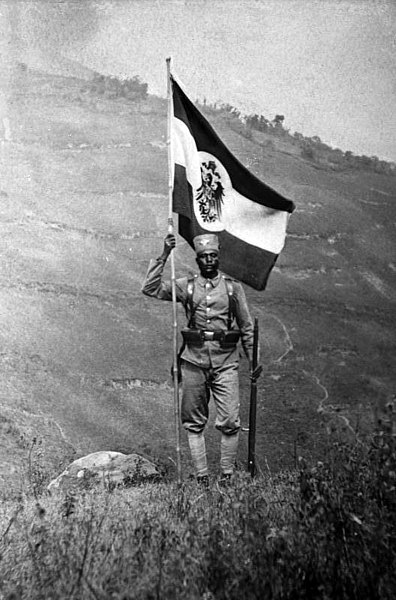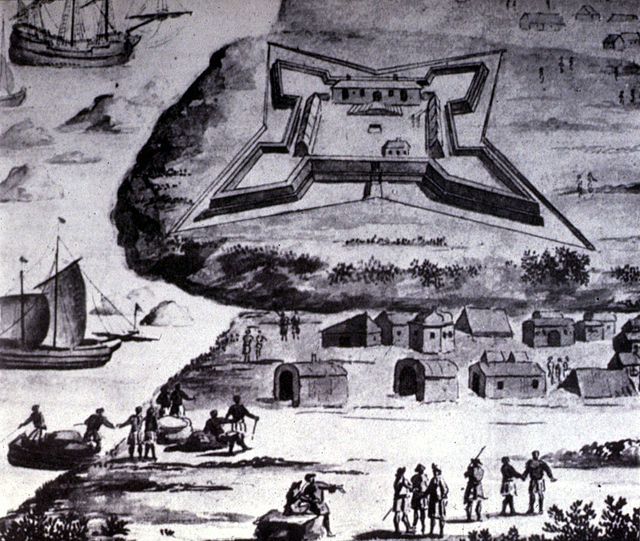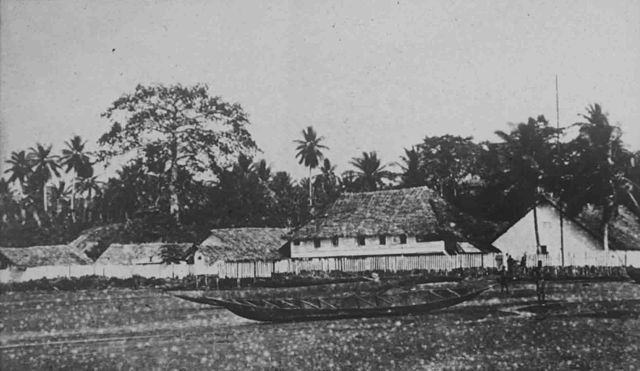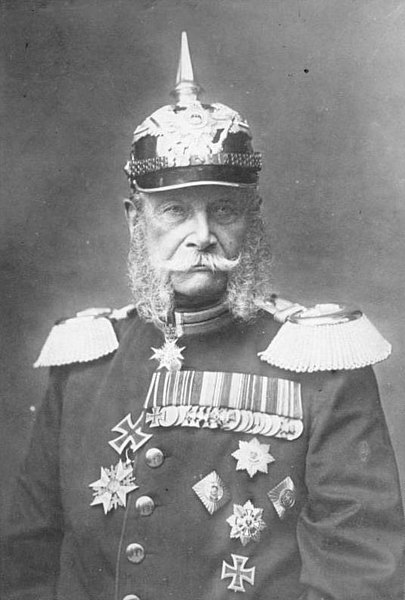The German colonial empire constituted the overseas colonies, dependencies, and territories of the German Empire. Unified in 1871, the chancellor of this time period was Otto von Bismarck. Short-lived attempts at colonization by individual German states had occurred in preceding centuries, but Bismarck resisted pressure to construct a colonial empire until the Scramble for Africa in 1884. Claiming much of the remaining uncolonized areas of Africa, Germany built the third-largest colonial empire at the time, after the British and French. The German colonial empire encompassed parts of several African countries, including parts of present-day Burundi, Rwanda, Tanzania, Namibia, Cameroon, Gabon, Congo, Central African Republic, Chad, Nigeria, Togo, Ghana, as well as northeastern New Guinea, Samoa and numerous Micronesian islands.
An East African Askari soldier holding Germany's colonial flag
Groß-Friedrichsburg, a Brandenburg colony (1683–1717) in the territory of modern Ghana
The Thetis, one of the ships of the East Asia Squadron
Woermann-Linie factory in Cameroon. From the 1830s, German shipping participated in trade with Africa and established factories there. From the 1850s, trade and plantation agriculture were undertakend by German companies in the South Seas. Some of these economic enterprises eventually formed the basis for the regions' conversion into German colonies.
The German Empire, also referred to as Imperial Germany, the Second Reich or simply Germany, was the period of the German Reich from the unification of Germany in 1871 until the November Revolution in 1918, when the German Reich changed its form of government from a monarchy to a republic.
The German colonial empire in 1914
Chancellor Bismarck
Wilhelm I in 1884
Die Proklamation des Deutschen Kaiserreiches by Anton von Werner (1877), depicting the proclamation of Emperor William I (18 January 1871, Palace of Versailles). From left, on the podium (in black): Crown Prince Frederick (later Frederick III), his father the emperor, and Frederick I of Baden, proposing a toast to the new emperor. At centre (in white): Otto von Bismarck, first Chancellor of Germany, Helmuth von Moltke the Elder, Prussian Chief of Staff.








